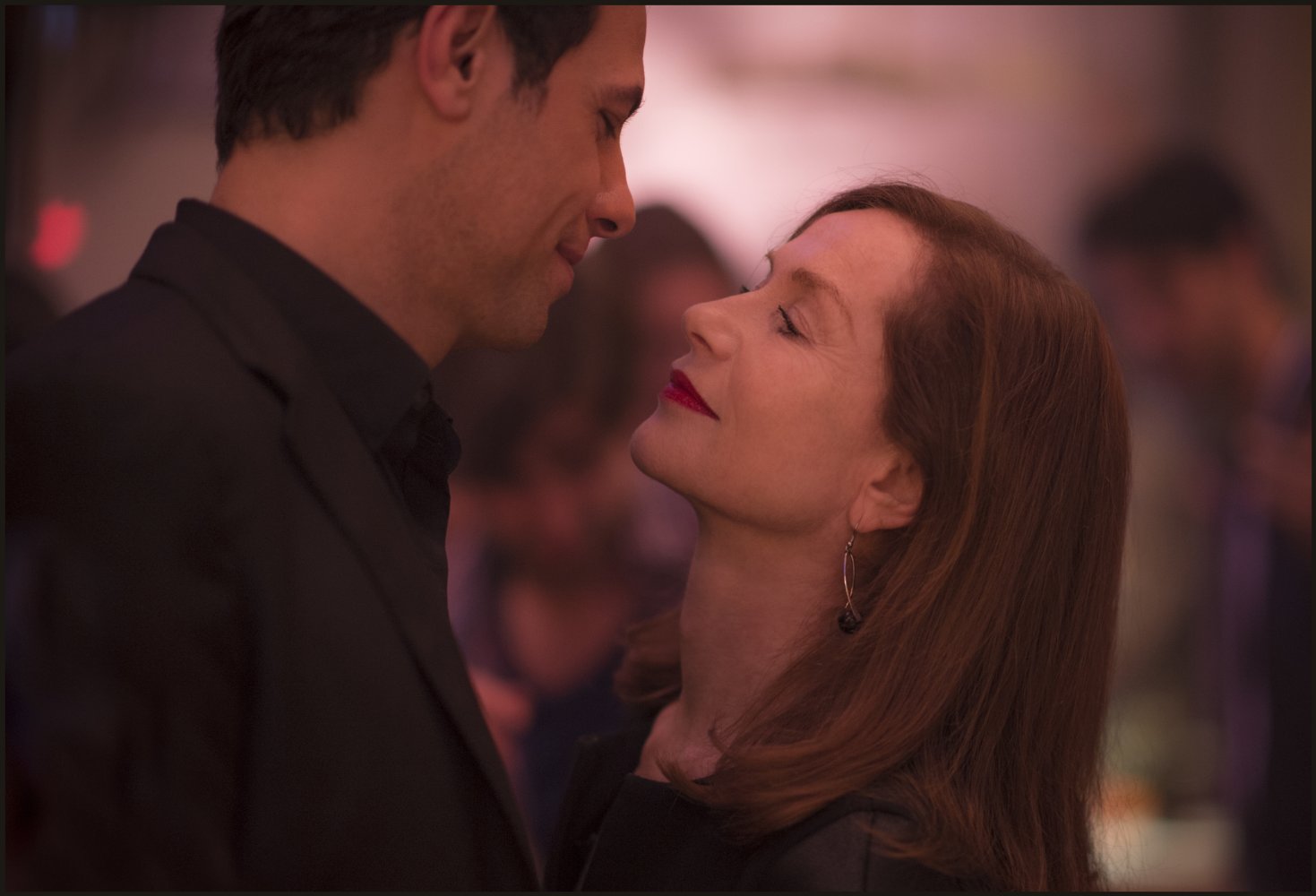
When Constance first has sex with Parkin in Pascale Ferran’s Lady Chatterley, you can see it on her face: she’s confused, she’s horrified, she’s curious, she’s unsure of herself. It’s the sexiest scene in one of the sexiest movies of all time, because it’s awkward. Awkward is real.
There’s no one way that women need to be portrayed, just as there’s no one way that people like to have sex. But American films too often portray female sexuality in a disempowering manner. What we see is too general, rarely showing a woman’s unique qualities or desires, or the vulnerability we need in order to believe it. It’s not at all compelling when screenwriters become too literal and write, “Now they have intercourse. Cut away.” Yet that’s what we get 99% of the time. Our films are rife with fake orgasms — women are supposed to scream and huff and puff, the pornographic idea of what a female orgasm looks like, or the camera cuts away and those moments aren’t depicted at all.
When Isabelle Huppert’s character has an orgasm in Elle, it looks real because she’s an astonishing actress — I’m thrilled she was nominated for Best Actress at this year’s Oscars — and because what she’s doing is believable and real and human and embarrassing. She’s a grandmother teetering on the ledge of a table with a pair of binoculars in one hand and the other up her skirt, watching the neighbor. Not bad.
A good sex scene is a dance. It’s a choreography. It’s about power dynamics and sustaining secrets until they explode, which should also be true of every scene you write. Who’s on top and who’s on the bottom is as essential for a scene you set in the courtroom as it is for a scene you set in bed. If you jump from A to D and you haven’t properly prepared the audience, it’s jarring. They won’t believe it.
I’ll never forget seeing In the Cut in a very big theater in the middle of the day, packed with people. I was beside myself with arousal, and I hadn’t at all expected to be. The timing, the chemistry between the two actors onscreen — Jane Campion, the director and writer, knew the answers to the questions: When are we ready to suddenly see Mark Ruffalo’s unbelievable penis? And when are we ready to hear his voice, speaking in this way that plays into a particular female fantasy? The moments and the pages before a sex scene that works are like foreplay — the entire film script becomes sensual, relying on all the senses and somehow awakening an erotic mind and eye, so when the sex finally does happen, the audience is prepared to believe it.
Of course, what’s sexy to someone may not be to someone else. I’ve asked men which films they find the sexiest, and many say Belle de Jour, to which I have to ask why. Is it because you just think Catherine Deneuve is beautiful, or do you actually find it sexy? They always say there’s just something about the idea of a bored housewife who wants to become a whore. What’s sexy about that? I don’t get it, but that’s fine. It’s all individual preference.
In my own work, I’ve always liked collaborating with male directors, because I appreciate the combination of their male gaze on top of my female gaze. But this doesn’t happen enough. I’m tempted to say that this goes without saying, but apparently it needs to be said: There are not enough female directors or writers working in Hollywood. No women have been nominated for directing or writing Oscars this year, with the exception of Allison Schroeder, who co-wrote Hidden Figures. Why aren’t people going bananas over that?
Yes, we’ve made some progress when it comes to women’s representation and female sexuality. Huppert is an Oscar contender for a role that delves into treacherous unknowns of longing and desire and ambivalence — something we’ve rarely seen before. And we have television shows like Girls, which I find very sexually empowering for women. But in many ways, we’re still in the Dark Ages.
(As told to Lucy Feldman)
Erin Cressida Wilson won the Independent Spirit Award for the cult classic, “Secretary,” and most recently wrote the film adaptation of “The Girl on the Train.”
More Must-Reads From TIME
- The 100 Most Influential People of 2024
- The Revolution of Yulia Navalnaya
- 6 Compliments That Land Every Time
- Stop Looking for Your Forever Home
- If You're Dating Right Now , You're Brave: Column
- The AI That Could Heal a Divided Internet
- Fallout Is a Brilliant Model for the Future of Video Game Adaptations
- Want Weekly Recs on What to Watch, Read, and More? Sign Up for Worth Your Time
Contact us at letters@time.com